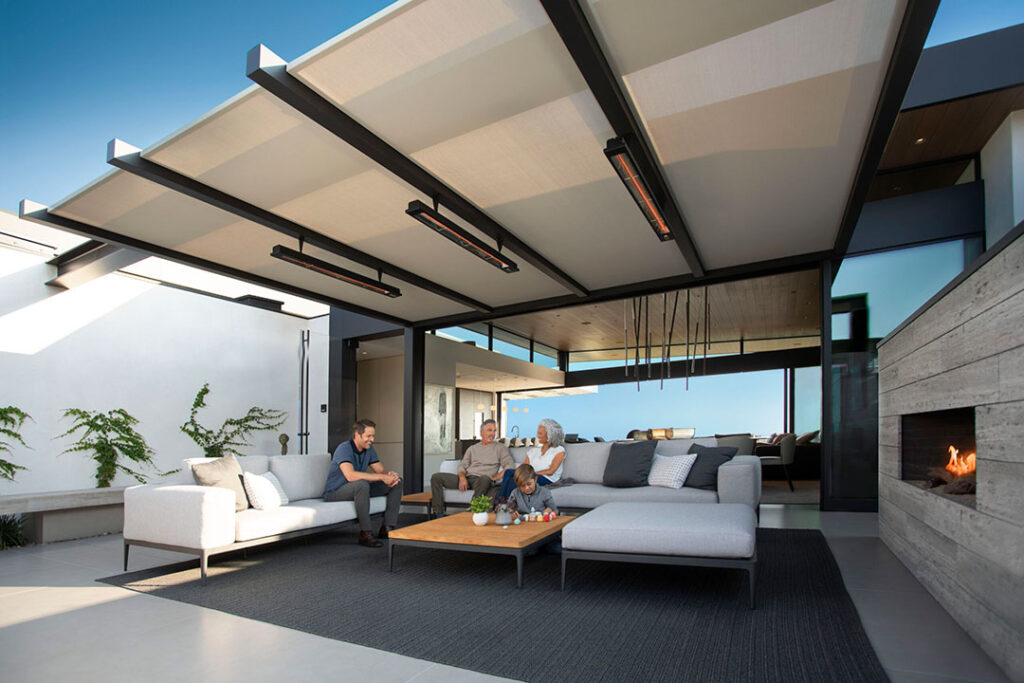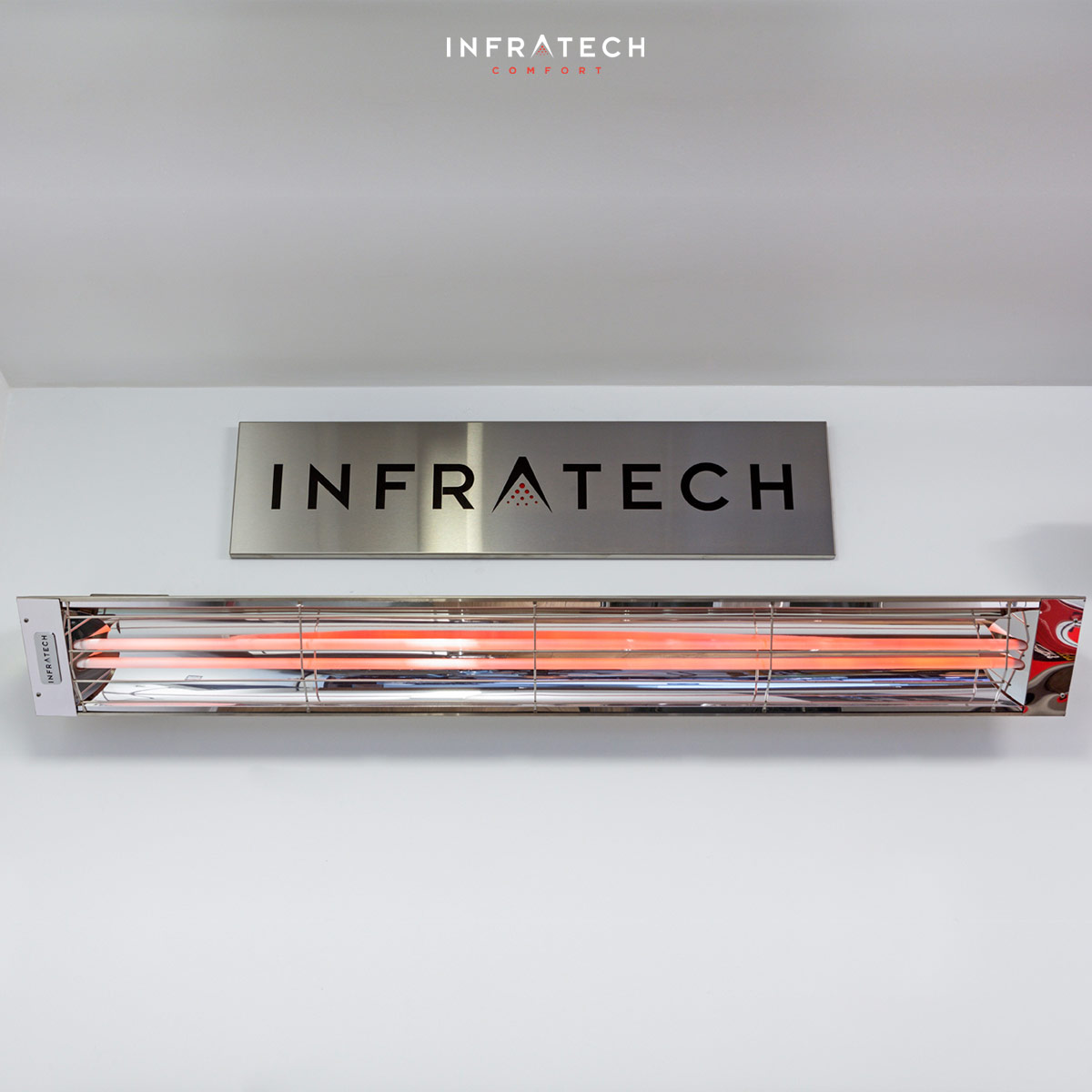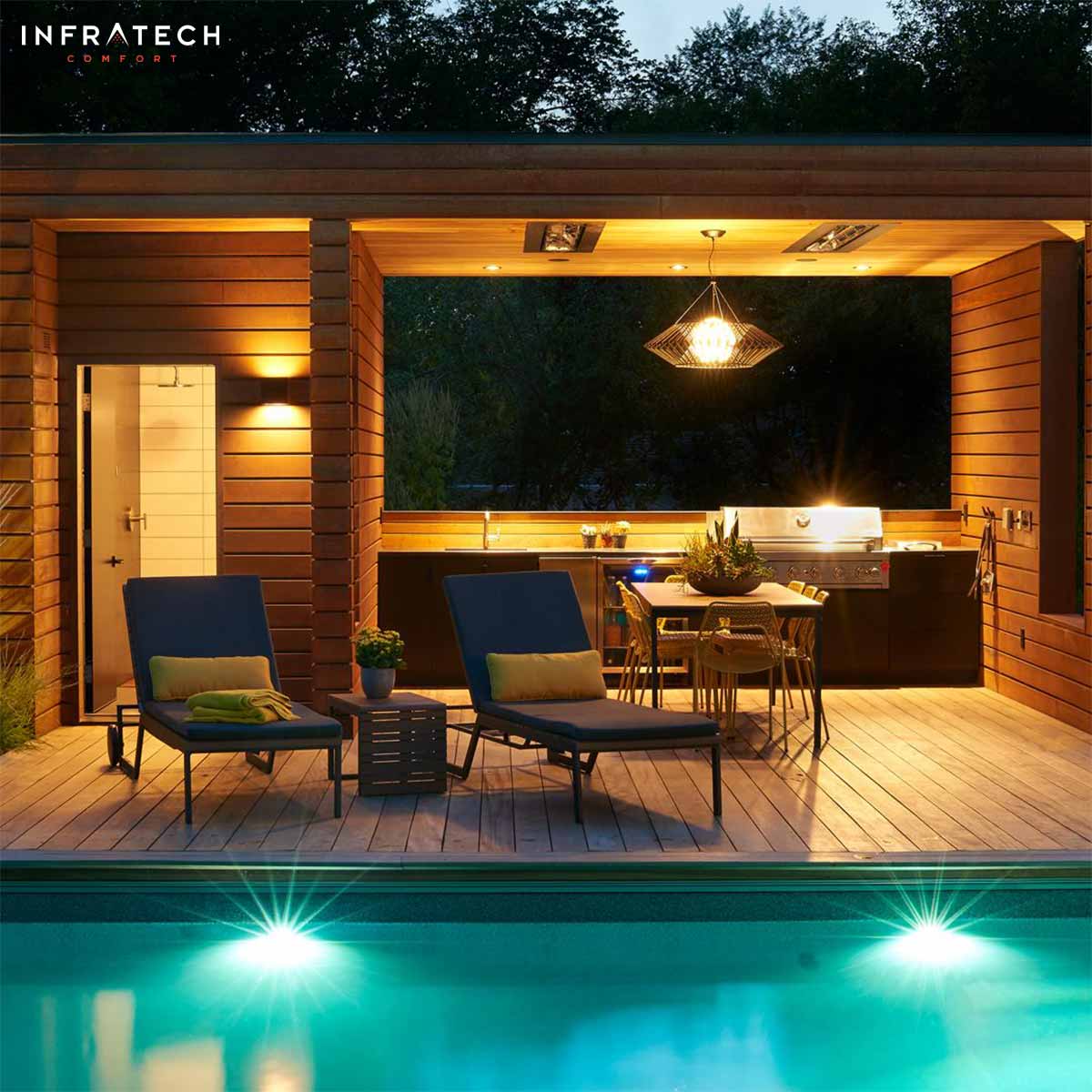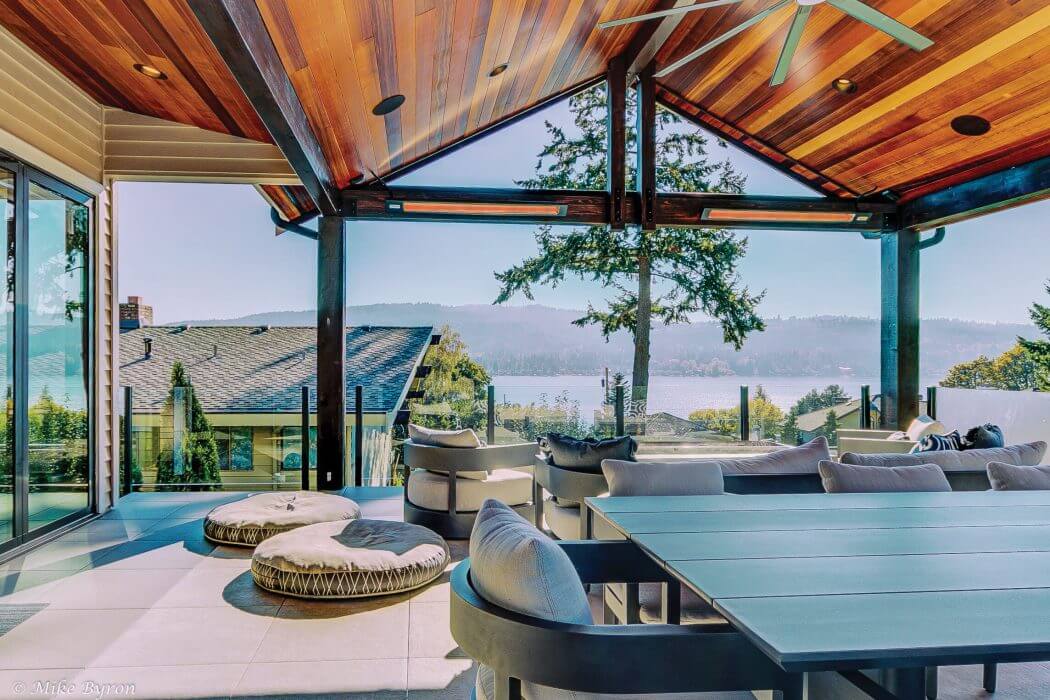
You’ve likely considered different ways to stay warm during outdoor gatherings, one option you might’ve come across is using radiant heaters. They’re designed to provide direct heat to people and objects, using infrared technology to guarantee consistent warmth. But you might wonder, are they efficient and safe enough for outdoor use? It’s a valid concern, one we’re about to explore further. So, stick around, as we dissect the pros and cons of using radiant heaters outdoors.
Key Takeaways
- Radiant heaters efficiently provide direct heating to outdoor spaces, not just warming the air.
- They operate quietly and maintain efficiency in various weather conditions, including wind.
- These heaters are energy-efficient and cost-effective, reducing energy consumption.
- Safety and performance can be optimised with correct installation, clearances, and regular maintenance.
- Infratech offers top-tier outdoor radiant heaters perfect for your needs.
Understanding Radiant Heaters
Before delving into the specifics of outdoor radiant heaters, it’s essential to grasp what radiant heating is and how it works. Radiant heaters generate infrared radiation that directly warms the objects and people in its path, rather than heating the air. This unique operation makes them energy-efficient and highly effective in both indoor and outdoor settings.
Radiant heater safety is an important aspect to take into account. These heaters don’t rely on combustion to provide heat, reducing the risk of carbon monoxide exposure. However, they can become hot to the touch and should be placed where they won’t be accidentally bumped or knocked over. Some models come with safety features like automatic shut-off and tip-over protection for added security.
How Radiant Heaters Work
Understanding how radiant heaters work can help you optimise their energy-efficient warmth. Unlike typical heaters that warm the air, radiant heaters use infrared technology to produce heat. This method of heat distribution is direct and immediate, warming objects and people before the surrounding air.
Radiant heaters function in a particular way:
- They generate infrared light invisible to the human eye. This light is absorbed by your skin, clothes, and other objects, which directly heats them up instead of the air around them.
- The heat produced is then distributed evenly across the space, creating a consistent temperature throughout. This prevents cold spots and makes for a more comfortable environment.
- The heaters turn on and off automatically to maintain the desired temperature, providing efficient use of energy and cost savings over time.
These heaters’ mechanism ensures a quick, efficient, and direct way of heating, making them suitable for various outdoor situations. Understanding the work behind radiant heaters allows you to utilise them more effectively, enhancing your outdoor experience during colder months.
Benefits of Radiant Heaters Outdoors
You might be wondering what benefits can be reaped from using radiant heaters outdoors. For starters, let’s examine their efficiency, which sets them apart from other heating options. Then, we’ll consider the impact of various weather conditions on their performance to give you a thorough understanding of their advantages.
Outdoor Radiant Heaters Efficiency
Harnessing the efficiency of outdoor radiant heaters can greatly enhance your comfort during chilly nights. These heaters generate warmth directly to people and objects, mimicking the natural heat of the sun. However, to fully enjoy their benefits, proper installation procedures and safety measures should be taken into account.
For instance, the positioning of your heater can affect its efficiency. It should be installed in a location where it can radiate heat directly to your outdoor space without any obstruction. Similarly, safety measures, such as maintaining a safe distance from flammable materials, are essential to prevent any potential hazards.
Radiant heaters provide several benefits:
- Direct Heating: Unlike conventional heaters, they heat objects and people directly, not the air, providing a comfortable warmth even on the coldest nights.
- Energy Efficiency: These heaters use less energy compared to other heating systems, making them an eco-friendly and cost-effective option.
- Quiet Operation: Since they don’t have fans or moving parts, they operate silently, creating a peaceful outdoor environment.
Weather Impact on Performance
Despite varying weather conditions, outdoor radiant heaters maintain their efficiency, delivering consistent warmth to your space even in the chilliest of breezes. They’ve undergone rigorous performance testing, proving their reliability under diverse weather situations. Whether it’s a cool autumn evening or a freezing winter night, they won’t disappoint.
These heaters show a high level of climate adaptability. They aren’t fazed by sudden temperature drops or increases. You’ll find their performance remains steady, largely unaffected by unpredictable weather. This adaptability guarantees that your outdoor events, from a family barbecue to a casual get-together, aren’t interrupted by cold winds.
Plus, radiant heaters don’t just heat the air; they radiate warmth to objects and people, providing direct heat. This feature makes them less likely to lose heat in breezy or open areas. Even when the wind blows, the heat stays with you, not swept away into the night.
Energy Consumption
When pondering outdoor radiant heaters, you should be mindful that a notable limitation is their substantial energy consumption. While these heaters are excellent at providing targeted warmth, they can consume a significant amount of energy, leading to higher utility bills. However, the performance versus result ratio is worth it when compared to other forms of outdoor heating.
Part of your decision-making process should involve assessing the energy efficiency of different models. Unfortunately, not all radiant heaters are designed with energy conservation in mind, making it essential to choose wisely. Here are a few points to contemplate:
- Some heaters offer energy-saving features such as adjustable heat settings or timers, allowing you to control energy consumption.
- The cost of operation can vary greatly depending on the model and the energy prices in your region.
- Safety precautions such as automatic shut-off features can also impact energy use. A heater that automatically turns off when it’s tipped over or overheats not only enhances safety but also conserves energy.
Maintenance and Durability Issues
Aside from weather-related performance, it’s also worth noting that the maintenance and durability of outdoor radiant heaters could present some limitations. These heaters demand regular upkeep to guarantee efficient operation, and their sturdiness can vary depending on the brand and model.
Infratech heaters come with detailed but simple instructions on how to install them in a way that gives the optimal level of heat for the given area in all weather conditions, and they rate against other less efficient forms of heat.
Safety precautions are paramount when handling these heaters. For instance, they must be placed away from flammable materials and should be regularly checked for any damages that might pose a fire hazard.
Installation challenges also come into play. You may need professional help to correctly install these heaters, adding to the overall cost. Additionally, they should be strategically positioned to provide maximum heat coverage, which requires careful planning and consideration.
The durability of radiant heaters largely depends on their exposure to harsh weather conditions. Frequent exposure to rain, snow, or high winds can noticeably reduce their lifespan.
To summarise, here are the main maintenance and durability concerns for outdoor radiant heaters:
- Regular upkeep for efficient operation
- Safety precautions to prevent fire hazards
- Installation challenges and strategic positioning
- Durability issues due to exposure to harsh weather conditions
Although these limitations exist, with the right practices and precautions, you can ensure your radiant heater provides the warmth you need for many seasons to come.
Comparing Radiant Heaters to Other Heaters
When evaluating outdoor heating options, it’s important to compare radiant heaters with other types of heaters to understand their unique advantages and potential drawbacks. Radiant heaters, unlike propane, wood-fired, or bioethanol heaters, directly heat objects and people rather than the surrounding air. This makes them a more efficient heating option, particularly in outdoor spaces where warm air can easily be lost to the environment.
When it comes to heater safety, radiant heaters shine. They don’t produce open flames or release carbon monoxide, reducing the risk of fires and harmful gas exposure.
However, let’s talk about cost analysis. While radiant heaters are efficient, they often come with higher upfront costs compared to other heaters. But don’t be too quick to discard them. Over time, their efficiency could lead to lower energy bills, possibly making them a more cost-effective option in the long run.
Best Practices for Using Radiant Heaters Outdoors
To maximise the effectiveness of your outdoor radiant heaters, it’s important to follow a set of best practices for their usage. These practices not only enhance heater performance but also guarantee that safety precautions are met, minimising any potential risks.
During the installation process, it’s important to position your heaters strategically. Placement largely influences the amount of heat distributed and the areas warmed. You’ll want to make sure the heaters are aimed at the spaces where people will be spending time, rather than wasting heat on unoccupied areas.
Consider these key points:
- Install your heaters at the correct height: Radiant heaters should be installed at least 2.1 metres above the ground to ensure optimal heating and safety. Check out our Heating Coverage Chart for more information.
- Ensure proper clearances: Keep radiant heaters at a safe distance from flammable materials to prevent fire hazards.
- Regular maintenance: Cleaning and inspecting your heaters regularly can extend their lifespan and improve their performance.
Always remember to follow the manufacturer’s guidelines throughout the installation process and operation. These best practices, combined with the inherent advantages of radiant heating, can help you create a warm and inviting outdoor space.
Top Recommended Outdoor Radiant Heaters
Let’s explore our top picks for outdoor radiant heaters that are sure to keep your outdoor spaces warm and inviting.
Infratech’s C Series: The C Series features sleek, modern designs and are ideal for spaces where aesthetics are as important as function. These heaters provide a cost-effective solution for both residential and commercial applications. Learn more about the C Series.
Infratech’s CD Series: The CD Series offers dual-element heaters, delivering a higher wattage for larger outdoor areas. These heaters are perfect for patios, terraces, and outdoor dining areas. Learn more about the CD Series.
Infratech’s SL Series: The SL Series includes slimline heaters that blend seamlessly into any environment. They are suitable for both indoor and outdoor use, providing powerful heat in a compact design. Learn more about the SL Series.
Regardless of your specific needs, you’ll find one that’s a perfect fit for your outdoor space. Remember, a warm and inviting outdoor area is just a radiant heater away.
Frequently Asked Questions
What Is the Average Lifespan of an Outdoor Radiant Heater?
The average lifespan of an outdoor radiant heater varies. It’s influenced by many factors such as usage, maintenance, and weather conditions. If you’re using it appropriately and maintaining it regularly, you can expect it to last for approximately 10 years. Remember, heater efficiency plays a major role too. A more efficient heater tends to have a longer lifespan, so it’s essential to consider this when purchasing.
Can Outdoor Radiant Heaters Be Used in All Types of Weather?
Yes, you can use outdoor radiant heaters in all types of weather, thanks to their weather resistance. However, the installation process matters. It’s important to install them in a protected or covered area to prevent direct exposure to elements like heavy rain or snow. So while they’re built to withstand various conditions, you’ll extend their lifespan by taking these extra precautions.
Do Outdoor Radiant Heaters Require Regular Maintenance or Servicing?
Yes, you’ll need to take care of regular maintenance for your outdoor radiant heater. It’s essential for the heater’s longevity and energy efficiency. The installation process usually includes guidelines on upkeep.
Are There Any Safety Concerns When Using Radiant Heaters Outdoors?
Yes, there are safety concerns. Radiant heater efficiency can be compromised if it’s not properly placed. It’s recommended to keep it away from flammable materials and make sure it’s securely positioned to prevent tipping. Additionally, don’t leave it unattended when on. Proper usage and placement can greatly reduce potential hazards, so always follow manufacturer’s instructions. It’s not just about getting the most warmth, it’s also about keeping safe.
What Is the Cost of Operating an Outdoor Radiant Heater?
The cost of operating an outdoor radiant heater depends on its efficiency and energy consumption. Generally, they’re cost-effective due to their high efficiency, converting nearly all energy into heat. However, energy consumption varies based on size, model, and usage. You’ll spend less if you use it sparingly. It’s key to compare models and consider your intended usage to determine the most economical option for you.
Conclusion
To sum up, radiant heaters are an excellent choice for outdoor heating. They offer efficient, direct heat without wasting energy on heating the air around them. Although they’ve some limitations, their benefits far outweigh these. With proper use and maintenance, they can provide reliable performance in various weather conditions. So, if you’re looking for an energy-efficient way to keep your outdoor space warm, consider investing in a radiant heater.





